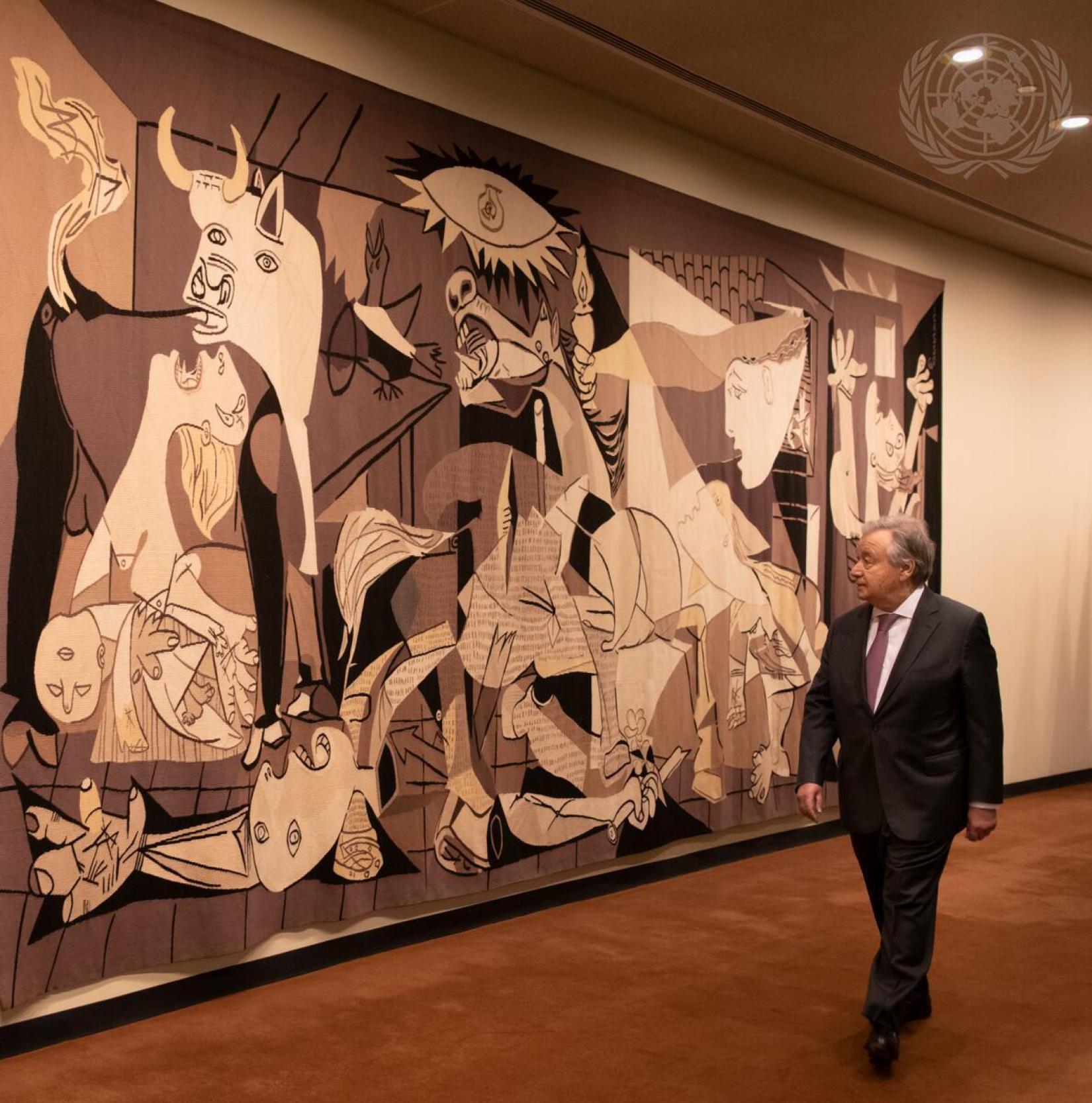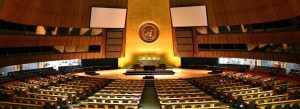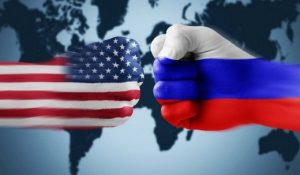
Views: 99
“Who rules East Europe commands the Heartland;
Who rules the Heartland commands the World Island;
Who controls the World Island commands the World”
(Sir Halford John Mackinder, 1919)
The term geopolitics was first used by the Swedish political scientist Rudolf Kjellén (1864−1922) in 1899, but the term did not become popular in academic circles until it became used in the early 20th century by British geographer and strategist Halford Mackinder.
Nevertheless, the concept of geopolitics as a theoretical approach to global politics and international relations (IR) was soon used firstly in Germany and later in the USA. The concept itself was stressing a set of constraints of different nature but focuses on foreign policy by both geographical location and geographical environment in general.
The term itself is derived from two words coming from the ancient Greek language: land and politics. In other words, the simple essence of the concept of geopolitics derived from the linguistic viewpoint is how the nature (feature) of the land (geography) can influence the politics of international relations on different levels from the local, to global. Or to say in short: geopolitics is the geography of international relations.
Nevertheless, in a broader concept of meaning, geopolitics can be understood as an approach to foreign policy analysis that understands the actions, relationships, and significance of states in terms of geographical factors, such as location, climate, natural resources, physical terrain, and population.
The forefather of the field of geopolitics was most probably Alfred Mahan (1840−1914). He argued that the state which is in control of the seas (having naval power) is going to control global politics (in fact, the UK at that time). However, Halford John Mackinder was in a different opinion: the control of the land mass between Germany and Siberia is the key to controlling international relations (IR) and world politics.
It can be said that the establishers of the concept and academic discipline of geopolitics in IR and global politics are the German, Karl Ernst Haushofer (1869−1946), the British Sir Halford John Mackinder (1861−1947), and two Americans: Nicholas John Spykman (1893−1943) and Saul Bernard Cohen (1925−2021). For all of them that was a common focal idea that control of the Eurasian landmass or in other words – the Heartland, is a prerequisite for global hegemony by any power pretending to be a super or hyperpower in IR and global politics. In fact, the crucial portion of the Heartland was controlled by the USSR and today by the Russian Federation.
The US administration became preoccupied with the geopolitics of Heartland during the Cold War 1.0 (1949−1989) understanding that the destruction of both the USSR and Russia is the only way to establish American control and dominance over the Heartland and therefore over the rest of the world. During the Cold War 1.0, Washington, and its Western satellites (collective West today) have been mainly preoccupied with fighting against Communist expansion into the Rimlands of South-East Asia, East, and South-East Europe, and the Middle East (land masses surrounding the Heartland).
The focal features among many others concerning geopolitics can be described as:
- Resource security – Security that is commonly understood in terms of access to energy and other resources sufficient in order to meet a state’s economic and military needs.
- Resource war – A war that is fought to gain or retain control of natural resources which are important to economic development and consequently political power in both inner and external policies of the state.
- Resources curse – The tendency of states with an abundance of significant natural resources to experience low growth, blocked development, and in some cases, civil conflicts (wars).
All theoreticians of geopolitics will argue that a nation’s most important territorial assets include its geographical features: size, location, climate, and physical components. It is very easy to understand such arguing if we use a simple glance at the globe that is clearly showing how geography, in fact, benefits, for instance, both the US and Russia:
- The US is separated from both Europe and Asia by oceans. This fact is providing convenient trade routes but at the same time is making any military invasion to be very difficult.
- Russia’s vast land mass is straddling Europe and Asia and gives it a strong strategic position in both.
- Historically, the territorial expansion of both the US and Russia gives them control over huge natural resources – an advantage shared by other large nations like Canada, Brazil, China, India, and Australia.
In IR, states have been and still are focal actors for the very reason that they have power – the ability not only to influence others but at the same time to control outcomes to produce results that would not have occurred naturally. States have power in relations with other states as well as with respect to those actors within their own state. However, power itself is multidimensional as there are different kinds of power. One of them is the relationship of geography and power. In other words, geographic size, position, and natural resources can decisively influence the level of the state’s power in IR. For instance, a large geographic expanse gives a state automatic power (Russia, USA, China, Brazil, India, Canada). But on the other hand, long state borders, however, may be at the same time a weakness as they must be defended which is both an expensive and technically problematic task.
In essence, behind the theoretical concept of geopolitics was the wish to promote the study of human geography as a kind of statecraft’s assistance with a belief that geopolitics can offer a way in which geographers could inform the practices of IR. Henceforth, the academic discipline of geopolitics is focusing on the ways in which different geographical factors can shape the character of international politics including a balance of power between the states too. The main geographical factors are including 1) the spatial layout of continental masses; and 2) the distribution of natural and human resources. Therefore, taking geography into consideration, for instance, 1) some territories can be seen as either easier or harder to defend; 2) physical distance has effects on politics; and 3) some topographical characteristics of the land can promote security or lead to vulnerability.
It has to be stressed that the issue of security is, in fact, crucial to the study of geopolitics and the practice of the politics of geography. In other words, this is the question of maintenance of the state in the face of threats but usually from other states or some other external powers. Geopolitics as a discipline can help national security by explaining the effects of a state’s geographical characteristics, and, therefore, of potential aggressors, on future power-political relations. Geopoliticians have to be able to predict which territory could strengthen a state, helping it to rise to prominence, and which areas might leave the state to be vulnerable to a certain degree. They claim (like Nicholas Spykman, for instance) that geography is a focal factor in IR and global politics as it is the most permanent.
Finally, for geopoliticians, the world is one close and interdependent system. In practice, the emergence of geopolitics as a discipline happened, actually, at the same time when global space became totally explored by Western colonists and imperialists and therefore became all available for state territorial and economic expansion. That was the time when, in fact, West European colonial expansionism had reached its height. Practically, geopolitics offered an academic way West European imperialistic states could protect their territorial acquisitions around the world. For instance, British geopolitician Halford Mackinder believed that controlling the territory of the Heartland provided an almost impenetrable position in global politics and, therefore, leads to global domination. His suggestion was that British policy would need to be wary of powers occupying the Heartland, and should create a “buffer zone” around the Eurasian Heartland in order to prevent the further accumulation of power that might challenge the hegemony of the global British Empire. The same policy of the creation of a “buffer zone” around Russia is on agenda by the collective West led by the USA since the end of the Cold War 1.0 up today.
Ex-University Professor
Research Fellow at Centre for Geostrategic Studies
Belgrade, Serbia
www.geostrategy.rs
sotirovic1967@gmail.com
© Vladislav B. Sotirovic 2023
Personal disclaimer: The author writes for this publication in a private capacity which is unrepresentative of anyone or any organization except for his own personal views. Nothing written by the author should ever be conflated with the editorial views or official positions of any other media outlet or institution.
Originally published on 2023-05-17
Origins of images: Facebook, Twitter, Wikimedia, Wikipedia, Flickr, Google, Imageinjection, Public Domain & Pinterest.
Read our Disclaimer/Legal Statement!
Donate to Support Us
We would like to ask you to consider a small donation to help our team keep working. We accept no advertising and rely only on you, our readers, to keep us digging the truth on history, global politics, and international relations.
FOLLOW US ON OUR SOCIAL PLATFORMS










